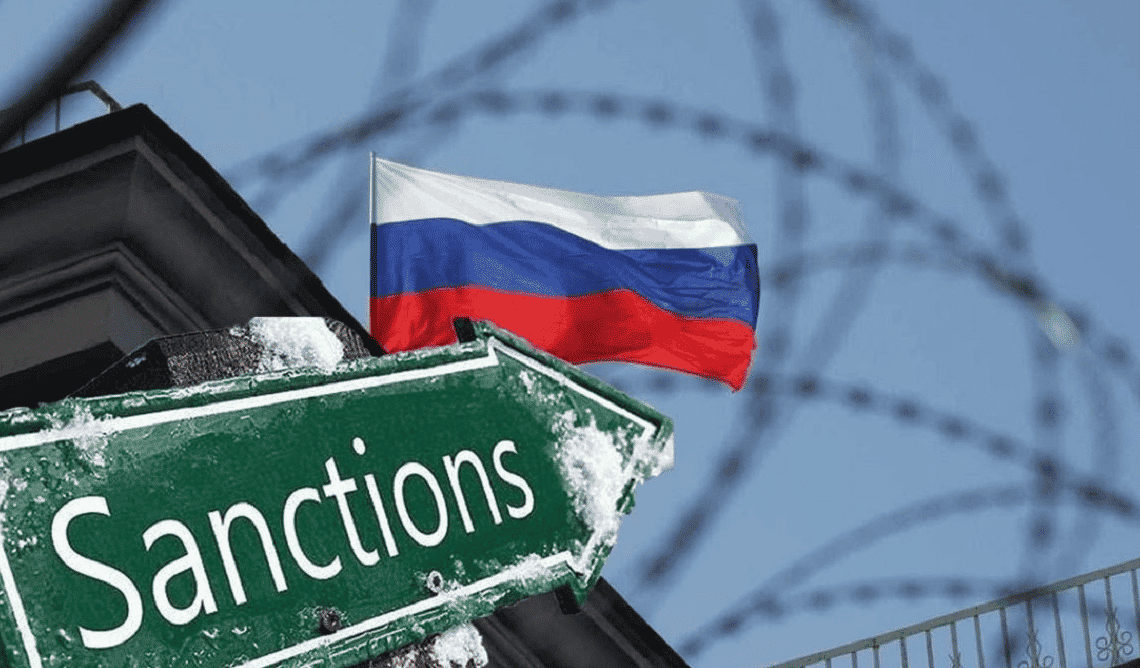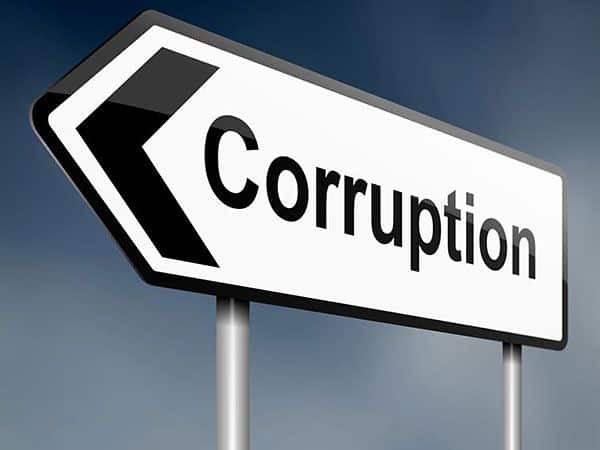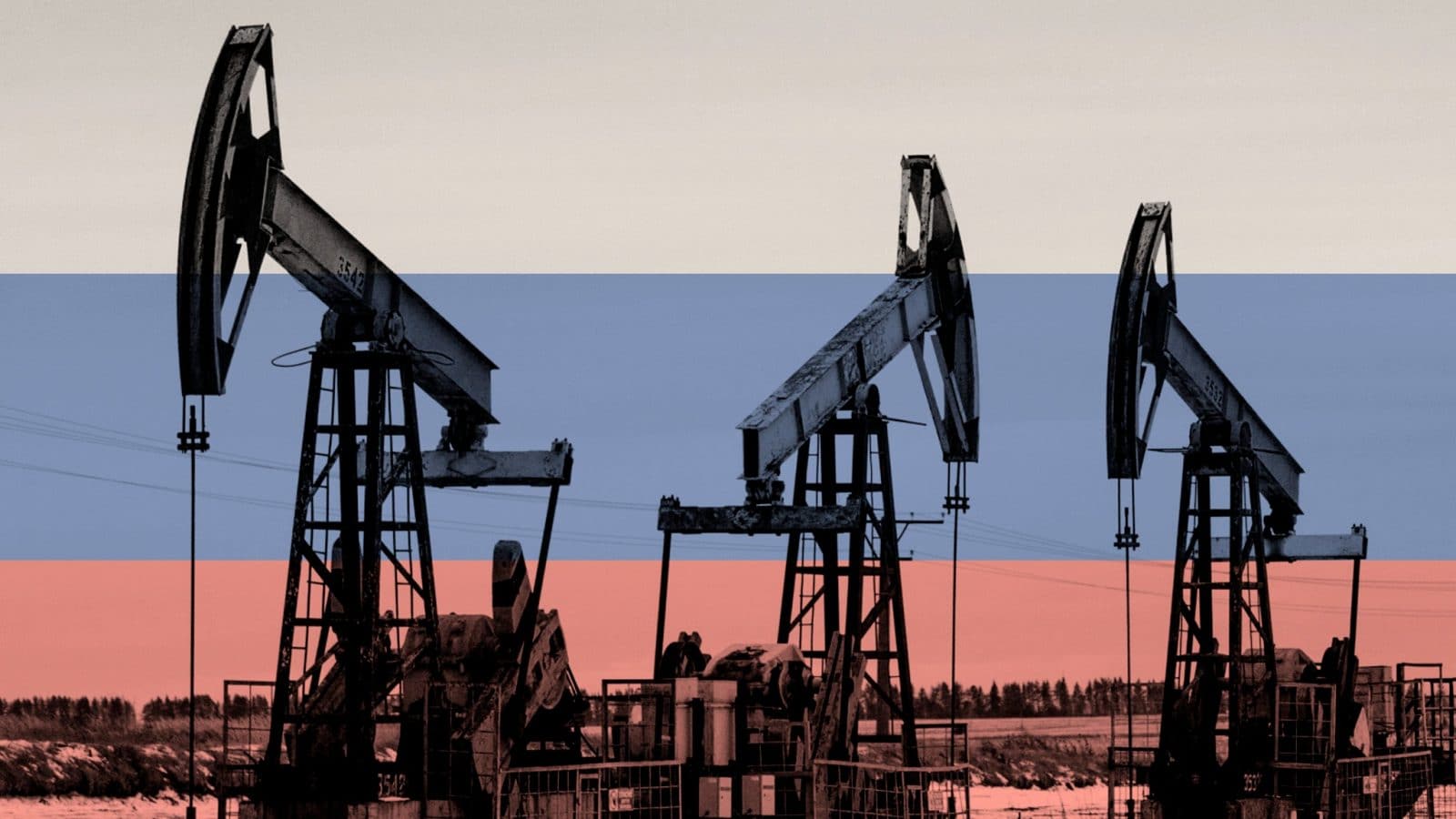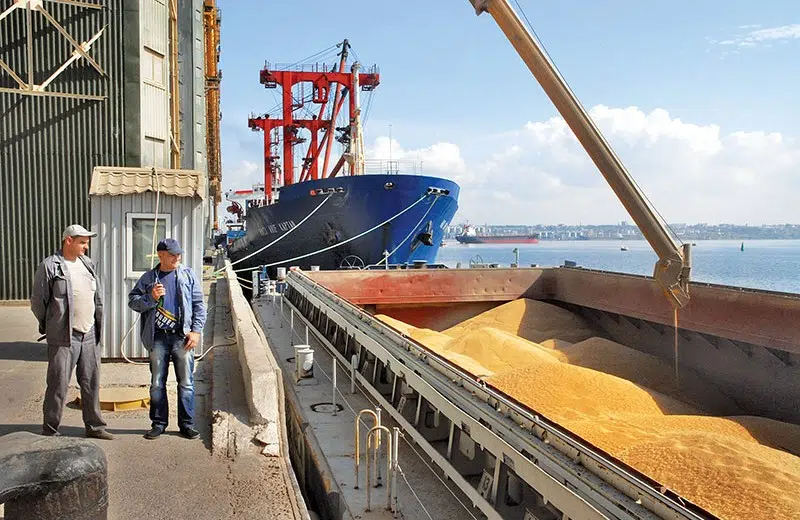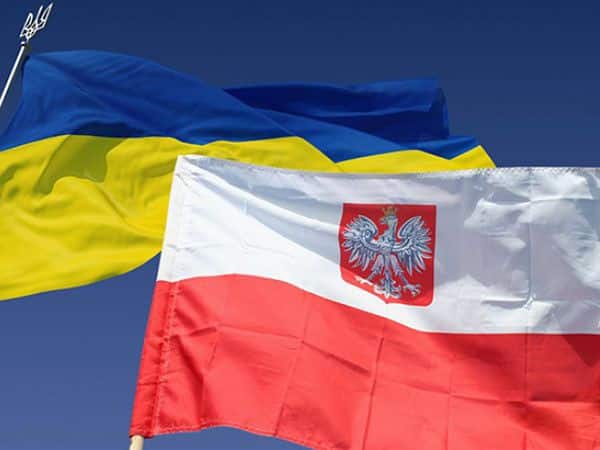Table of Contents
Olena Zelenska’s visit and South Korea’s support for Ukraine
In May, the First Lady of Ukraine, Olena Zelenska, visited Seoul, the capital of the Republic of Korea, as a special envoy of the Ukrainian President. On May 16, she met with the President of South Korea, Yoon Suk Yeol, at the administration in Yongsan. During the meeting, the South Korean President expressed support for Ukraine and solidarity from the Korean people, as well as condolences to the families of the deceased, and positively evaluated the activities of Olena Zelenska. For her part, she expressed gratitude to Seoul for the provided support and assistance, requesting its further expansion in areas where possible. She expressed hope that South Korea would provide non-lethal military equipment, including mine detection and disposal tools, ambulances, and actively participate in the post-war recovery process of Ukraine, particularly in Kherson, where many ethnic Koreans used to live. Yoon Suk Yeol also stated that South Korea would continue to actively support Ukraine in close cooperation with NATO members and the international community.
According to reports, it is noted that Olena Zelenska did not approach the South Korean leadership with a request for the supply of weapons and ammunition, expressing an understanding of the difficulties Seoul faces regarding this issue.
In particular, they are referring to legislative and political restrictions. South Korea’s export control prohibits the supply of weapons to countries in a state of war, although they are not as strict as in Japan, for example, where the relevant provisions are stated in the Constitution. Theoretically, it is possible to make changes to legislation, but it is extremely challenging, as the opposition Democratic Party Toburo controls the majority in parliament, rather than the ruling party, People Power.
At the moment, Yoon Suk Yeol has an unstable rating, and any abrupt moves in foreign policy could lead to its collapse. He has already suffered from criticism of many unpopular decisions made by the President, such as the normalization of relations with Japan, intensified rhetoric against North Korea, and excessively close alignment with the United States. For example, after the signing of the Washington Declaration in the White House, the Democrats accused Yoon Suk Yeol of excessive subservience to the US and deliberate destabilization of the security situation in the region. If Yoon dares to take a drastic step regarding the supply of weapons to Ukraine, Toburo will seize the opportunity to accuse the President’s administration of involvement in a “foreign war.” Against the backdrop of Yoon’s weak ratings, this could be critical, so the South Korean President would be more comfortable approaching this issue cautiously and incrementally.
Olena Zelenska also met with the wife of the South Korean President, Kim Keon-hee, who promised to continue providing humanitarian assistance to help the Ukrainian people overcome the difficulties of war. In an interview with the South Korean news agency Yonhap, Olena Zelenska invited the leader of South Korea and his wife to visit Ukraine. By the way, in the more than thirty-year history of Ukrainian-South Korean relations, the head of South Korea has never visited Ukraine on an official visit. Although the Land of Morning Calm was visited by Leonid Kuchma (state visit in 1996), Viktor Yushchenko (state visit in 2006), and Viktor Yanukovych (working visit in 2012).
As part of the visit, Olena Zelenska met with South Korean Foreign Minister Park Jin. As a result of the talks, the Korean side expressed its readiness to provide demining vehicles and mobile X-ray machines for Ukraine. The President’s wife expressed hope that a special tribunal would be established to bring the Russian leadership to justice for starting the war.
During Olena Zelenska’s visit to Seoul, a conference was held to discuss the participation of South Korean companies in infrastructure restoration projects in Ukraine. The event, titled “Conference on Cooperation between South Korea and Ukraine for the Sake of the Future,” was organized by the Korea Chamber of Commerce and Industry (KCCI) in collaboration with the Embassy of Ukraine in the Republic of Korea. Ukrainian government officials at various levels participated, including First Deputy Prime Minister/Minister of Economy Yulia Svyrydenko and Deputy Head of the President’s Office Rostyslav Shurma. South Korea was represented by around 10 businessmen from Hyundai E&C, Lotte E&C, POSCO International, Hyundai Engineering, Doosan, Korea Aerospace Industries (KAI), and KITA.
The First Lady of Ukraine also spoke at the Asian Leadership Conference. The purpose of the event is to engage world leaders in preparing future generations by creating a platform to discuss the most pressing global issues. The conference serves as a platform for speeches and exchange of ideas among many renowned international experts in the fields of business and entrepreneurship, as well as representatives of global business and financial structures. The current 14th edition of the event is titled “Asian Leadership. The Era of Upheaval: The Road to Collaboration and Innovation” and is dedicated, among other topics, to the full-scale Russian invasion of Ukraine. In her opening speech at the conference, the President’s wife emphasized the humanitarian consequences of the Russian aggression. She called on the entire world to provide military assistance to Ukraine, specifically urging South Korea to supply air defense systems to Kyiv. She mentioned discussing the need for supplying air defense systems and radar systems with Yoon Suk Yeol in her Telegram channel before the conference. During her speech, the First Lady of Kyiv expressed gratitude to the Korean people for their help and support, while also expressing hope for further assistance and support to increase.
President Yoon Suk Yeol, delivering a speech at the event, criticized Russia’s actions for its “attempts to change the status quo through force and coercive diplomacy.” According to him, this constitutes a blatant violation of international law and calls for consolidated and firm measures in response from the international community to “prevent the creation of a dangerous precedent.” In this context, Yoon also mentioned the missile and nuclear threat posed by North Korea.
The First Lady’s visit can be considered successful. As a result of the trip, the South Korean government has decided to provide additional financial assistance to Ukraine of up to $8 billion in concessional credit from the Economic Development Cooperation Fund (EDCF). The two sides signed a preliminary intergovernmental agreement regarding the credits. Ukraine has been included in the list of priority countries for bilateral cooperation with the Republic of Korea under the Official Development Assistance (ODA) program. Ukraine was also included in the list of priority countries for bilateral cooperation within the Comprehensive Plan for International Development Cooperation for 2021-2025. The possibility of receiving the first tranche from the EDCF, up to $300 million, will be available this year within 3-4 months after the signing of the second stage of the operation, which is expected within a month. The next tranche, up to $3 billion, will be available in 2024 with a gradual increase in the limit to $8 billion as pipeline projects are filled. Ukraine will also be able to utilize Korean resources and expertise for the post-war recovery of damaged infrastructure, industrial, and civilian facilities. The funds will be raised for a long-term period at minimal interest rates: the loan term can be up to 40 years at an annual interest rate of 0.15%, with a 10-year principal repayment deferment. The funds will be raised for a long-term period at minimal interest rates: the loan term can be up to 40 years at an annual interest rate of 0.15%, with a 10-year principal repayment deferment.
Economic cooperation and infrastructure restoration
Seoul and South Korean businesses are counting on active participation in the process of Ukraine’s recovery, industrial development, and infrastructure restoration following the cessation of hostilities and the normalization of the situation. Among the specific areas of interest for South Korea, nuclear energy can be highlighted, including the construction and servicing of both new and existing nuclear power plants (such as KEPCO and Doosan Energy). Metallurgy is another sector of interest, as Ukraine possesses iron ore reserves of over 30 billion tons and has the potential to provide 20-30% of environmentally friendly steel production in the region. The estimated production capacity is 46 million tons to meet domestic demand of 10 million tons (with the remaining volume exported to the EU). Additionally, the battery industry holds potential as Ukraine’s lithium reserves of 2.5-5 million tons are the largest in Europe. With the projected increase in the number of electric vehicles in the EU from 4.8 million to 130 million by 2030, there will be opportunities for collaboration in this sector as well.
The Republic of Korea is one of Ukraine’s leading trading partners in Asia, ranking fifth among Ukraine’s trade partners in the Indo-Pacific region with bilateral trade reaching approximately $995 million (in 2021). The export value is around $300 million, while the import value is around $695 million (compared to China with around $19 billion, India with around $3.4 billion, Japan with around $1.5 billion, and Indonesia with around $1.2 billion). Ukraine exports grains (corn and wheat), fats and vegetable oils of animal or plant origin, inorganic chemical products, ores, slag, and ash, wood, and wooden products to South Korea. In the future, the most promising segments for increasing Ukrainian agricultural product exports to the South Korean market, in addition to grains, include sunflower oil, organic products, non-GMO products, and meat supply (pork and beef).
Overall, there haven’t been significant breakthroughs in Ukrainian-Korean cooperation in recent years. Ukrainian-Korean economic relations are stable but have the potential to reach a strategic partnership level. Utilizing Korea’s investment and technological opportunities presents an additional chance for the modernization and reindustrialization of the Ukrainian economy. The Land of the Morning Calm can become a strategic partner for Ukraine in sectors such as infrastructure, traditional and alternative energy, finance, agriculture, construction, and information and communication technologies.
See also: Ukraine’s victory in the Asian era: what experience should be adopted
Considering that both Ukraine and the Republic of Korea embrace principles of free trade and there is a free trade regime between Ukraine and the European Union, it is advisable to initiate negotiation processes towards the conclusion of a free trade agreement between Ukraine and the Republic of Korea.
The need for diversification of external economic relations, reducing economic dependence on current main partners, and deepening integration into the global economy necessitate an increase in the share of the Republic of Korea and other industrially developed Asian countries in Ukraine’s foreign trade structure.
Opportunities for scientific, technical, and cultural cooperation
Ukraine, like the Republic of Korea, has a mutual interest in scientific and technical cooperation, particularly in the fields of electrical engineering and electronics, semiconductor technology, computer science, optics, sensors, applied physics, energy, applied chemistry, polymers, plastics, synthetic materials, biotechnology, and radiation irradiation.
Bilateral cooperation in the field of radiation medicine is being developed. Specifically, during peacetime, Ukrainian institutions of the National Academy of Medical Sciences (NAMS) of Ukraine, together with the Korean Institute of Radiological and Medical Sciences (KIRAMS), have been working on the development of new technologies for population protection from the consequences of nuclear disasters, prevention and treatment of radiation-related diseases, and the use of low-dose radiation in medical purposes. Additionally, Korean experts have received training in radiation protection at NAMS institutes.
The existing legal framework provides opportunities for future cooperation in the space industry. The results of cooperation between Ukraine and South Korea in the peaceful use of outer space include the successful launch of three South Korean satellites into Earth’s orbit using the Ukrainian rocket carrier Dnipro (in 2013 — the KOMPSAT-5 Arirang-5 Earth observation satellite and the scientific and technological satellite STSAT-3, in 2015 — the KOMPSAT-3A satellite). The launches of the rocket carrier were carried out under the Dnipro program.
There is also the Joint Ukrainian-Korean Committee on Scientific and Technical Cooperation (the last fourth meeting was held in 2012 in Seoul) and the Joint Ukrainian-Korean Commission on Cooperation in the Defense Industry and Logistics. However, over the past ten years, there has been no dynamics of interaction within these two bodies.
If trade, economic, and technological relations have remained relatively stable, although without significant evolution, the dynamics of bilateral political relations have significantly decreased over the past five years. This is partly due to the prioritization of countries focusing on regional dimensions in their foreign policies, although the United States has been a common denominator for both Ukraine and South Korea. Furthermore, Ukraine and South Korea are countries where geopolitical interests do not intersect, and there is no competition for spheres of influence or historical claims. On the other hand, these factors should be turned to the advantage of developing political relations that, with appropriate efforts, will be characterized by stability, predictability, and non-conflictual interactions.
It is worth mentioning the concept of the Republic of Korea’s foreign policy, the Eurasia Initiative, whose main objective is to create a peaceful community based on economic cooperation and joint innovations. The Eurasia Initiative envisions multilateral economic cooperation within the Eurasian continent, aiming to establish a trans-Eurasian corridor encompassing major gas pipelines, logistics, transportation, and energy networks. Ukraine is situated at the crossroads of trans-European transportation logistics and has favorable conditions to become part of the corridor for delivering goods from EU countries to Asian countries and Northeast Asian states.
Ensuring the regularity of high-level Ukrainian-Korean political dialogue should become one of the main components of Ukrainian policy towards South Korea in the political sphere. A high level of political contacts with Ukraine will be a signal to South Korean business about the possibility of developing economic projects and investing in Ukraine’s economy after the war.
One possible tool for fostering political dialogue could be an attempt to address the issues of South Korea, particularly the existential threat posed by North Korea and its nuclear program. Currently, the format of the “six-party” negotiations to resolve the North Korean problem has exhausted itself, and there is an obvious need for new initiatives. Ukraine, which seeks understanding of its national problems and greater support in countering Russia (which South Korea does not perceive as a threat to its national security), could offer political and diplomatic support to Seoul and initiate a new format for addressing the North Korean issue. In Ukraine, there is an awareness of the nuances of coexistence with a nuclear neighbor whose leadership is unpredictable and makes irrational decisions. Therefore, Ukraine and South Korea share some common ground. This fact provides Kyiv with a justifiable motivation to participate in a new negotiation format.
Both countries have opportunities in the cultural and humanitarian sphere as well. Ukrainian and South Korean higher education institutions have been collaborating fruitfully, and student and academic exchanges were common practice before the full-scale invasion of Ukraine by Russia, which logically will be resumed after the end of the war. An important element of bilateral cooperation in the field of education is the functioning of the Ukrainian Studies faculty at Hankuk University of Foreign Studies, one of the leading universities in the Republic of Korea. Approximately 100 Korean students study the Ukrainian language, history, and culture there. Students also undergo language internships at Taras Shevchenko National University of Kyiv.
South Korea implements a huge number of cultural and educational projects in Ukraine, including providing free grants for Ukrainian students, free Korean language instruction at the Korean Education Center in Kyiv, and organizing music festivals and competitions in Ukraine. In turn, Ukraine should utilize the potential of Ukrainians living and studying in South Korea to create a new and modern narrative related to the perception of Ukraine and Ukrainians, using the opportunities offered by social media, local television, and more. On the occasion of Vyshyvanka Day, for example, Olena Zelenska met with representatives of the Ukrainian diaspora, which comprises approximately 2,000 individuals.
An important aspect of humanitarian cooperation is the issue related to the ethnic Koreans residing in Ukraine. Before the full-scale invasion of Ukraine by Russia, there were approximately 35,000 members of the Korean national community. Despite the fact that the majority of ethnic Koreans are well integrated into Ukrainian society, many migrants who arrived in Ukraine from other countries faced certain problems with their legal status, such as the lack of Ukrainian citizenship or a permanent residence permit. Around 30,000 Ukrainian citizens have Korean origins, which indicates the cultural and historical ties between two countries.
Thus, Ukraine and South Korea have a significant potential for the development of bilateral relations, which is important to unlock now — under the conservative administration of Yoon Suk Yeol, who openly supports Ukraine in the war because in a different political scenario, if the Democrats were in power, the attitude in Ukraine would probably be different.
Originally posted by Alina Hrutsenko on Hvylya.net. Translated and edited by the UaPosition – Ukrainian news and analytics website
See also: The factor of North and South Korea in the Russian-Ukrainian war

